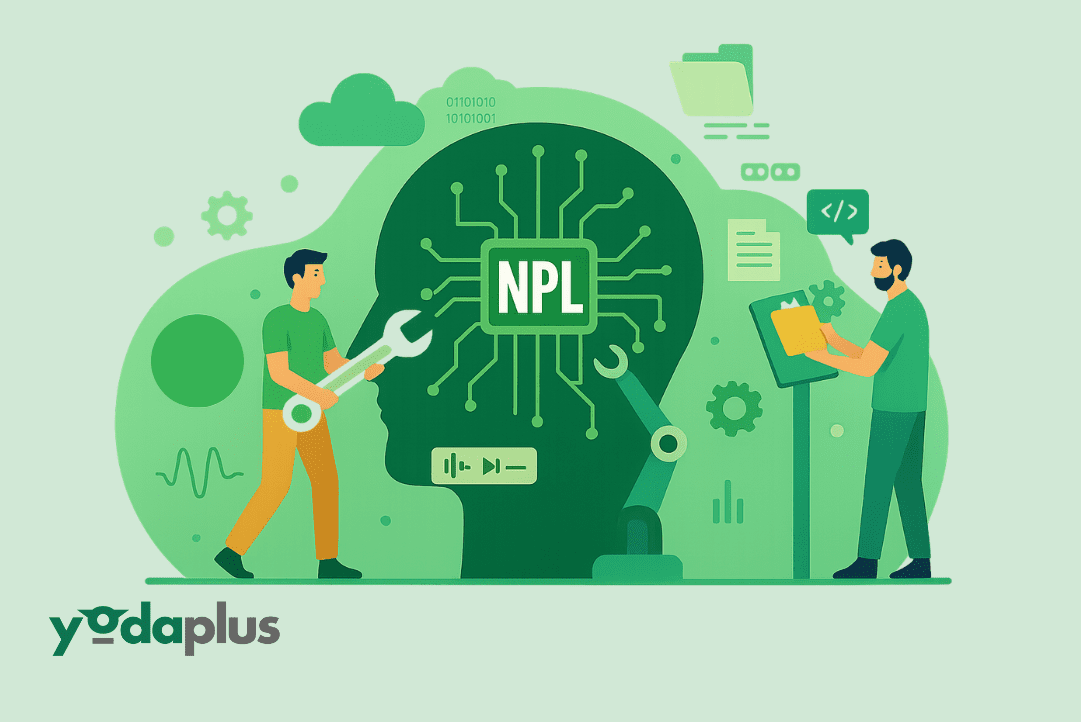
How NLP Is Being Applied in Financial Risk Analysis
April 30, 2025 By Yodaplus
Natural Language Processing (NLP) is rapidly becoming a cornerstone of financial risk analysis, enabling institutions to deliver smarter, faster, and more accurate insights. While traditional models focused primarily on structured data from balance sheets and transaction records, the landscape has evolved. Unstructured data—ranging from news articles and regulatory updates to social media sentiment—is now critical for building more comprehensive risk profiles.
For companies developing advanced FinTech solutions or strengthening their financial data management strategies, integrating NLP into risk assessment is not just an option—it is essential for staying competitive and resilient in a complex financial ecosystem.
What Is NLP in Finance?
NLP refers to the ability of machines to read, understand, and derive meaning from human language. In finance, NLP tools help institutions:
- Process and analyze enormous volumes of textual data
- Identify emerging risks
- Monitor regulatory developments
- Detect fraud patterns
- Understand sentiment and market-moving events
The result? Faster decision-making, better predictive models, and a competitive advantage in volatile markets.
Applications of NLP in Financial Risk Analysis
1. Credit Risk Assessment
By mining customer communications, payment histories, and even external data like court filings, NLP helps create a deeper and more dynamic profile of borrower risk—beyond traditional credit scores. This supports smarter credit risk management models.
2. Regulatory Compliance Monitoring
Financial institutions can use NLP to track regulatory changes globally in real time. Instead of manual monitoring, AI-driven systems read through government documents, legal texts, and regulatory bulletins to surface changes that impact operations.
3. Fraud Detection and Anomaly Recognition
NLP algorithms scan transaction logs, communications, and account activities to detect suspicious patterns. By combining machine learning with language models, businesses can spot early signs of money laundering or insider trading.
4. News and Sentiment Analysis
Financial markets react to news. NLP enables firms to automatically analyze thousands of news articles, blogs, analyst reports, and social media posts to gauge market sentiment and adjust investment strategies or risk exposure accordingly.
5. Document Digitization and Smart Contracts
Modern document digitization combined with NLP can automate the extraction of critical clauses from legal contracts, lending agreements, and insurance policies—enhancing compliance and reducing operational risks.
Enterprise-Level Benefits
- Real-Time Risk Management: Immediate visibility into evolving risks, not just periodic reviews
- Cost Efficiency: Reduces the need for large compliance teams manually reviewing documents
- Improved Decision-Making: Access to broader, deeper datasets
- Scalability: NLP solutions scale easily with growing data volumes across financial technology platforms
Challenges to Consider
- Data Privacy: Handling sensitive financial data requires stringent encryption and governance measures
- Bias and Accuracy: Models must be trained to avoid biases that could skew risk assessments
- Interpretability: NLP-driven models must offer explainability, especially in regulated industries
Conclusion
The future of financial risk management lies at the intersection of AI technology, machine learning, and NLP. Institutions that leverage these technologies can achieve faster response times, better risk insights, and greater operational efficiency.
At Yodaplus, we empower financial institutions to integrate Natural Language Processing, data mining, and AI-driven insights into their core systems—delivering smarter, more resilient FinTech solutions for the next generation of financial services.